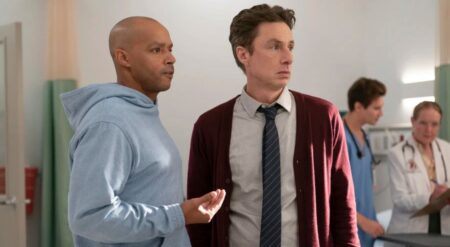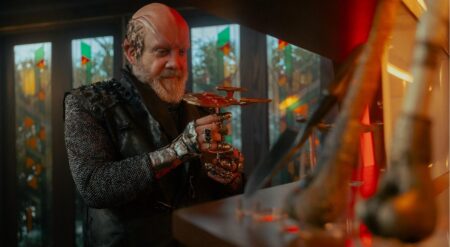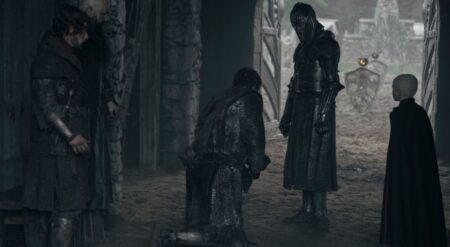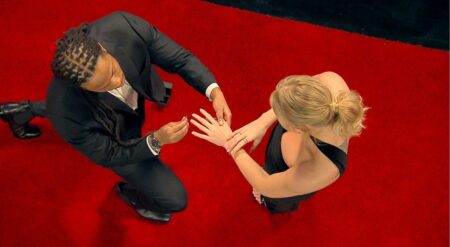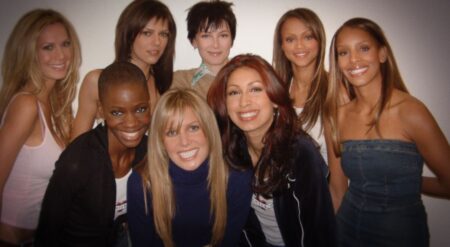
HBO’s The Idol is off to a fizzling-out start on the platform, and it doesn’t seem like it’s turning around with Episode 3, “Daybreak.” The series attempts to showcase the dark side of stardom and instead loses itself through a male gaze that strips any thematic message from its core. This was true with the premiere episode, “Pop Tarts and Rat Tails,” and last episode, “Double Fantasy.” In Episode 2, Jocelyn (Lily-Rose Depp) is in the middle of restructuring her music career based on skeezy club owner Tedros’ (The Weeknd) advice after the death of her mother, her ex cheating on her, and an impending cancellation of her world tour because of the spiral everyone around her can see.
Tedros, the nightclub impresario, isn’t creeping in to control Jocelyn’s life, he is storming in and breaking everything in the doorway. When Tedros starts calling all the shots in Jocelyn’s life, some members of her team begin to grow suspicious as strings start to snap. That said, we don’t know how Jocelyn feels in all of this. She’s a pawn at best and a piece of meat at worst. In there, there could be a commentary on the commodifying of youth for the fame of those around you, but there isn’t.
Jocelyn’s best friend, Leia (Rachel Sennott), is trying to protect her. She alerts Jocelyn’s inner circle in a way to get Tedros in check as he runs through the house making choices for her. Leia is the only person who is putting Jocelyn at the center, but that one lifeline isn’t enough to ground the story by giving Jocelyn any agency as a human. Tedros should be terrifying. His actions and his words are abusive and gross but the Weeknd’s performance is so vapid that it’s just weird.
Everything controlling that he does, from the word choices he uses to refer to Jocelyn, to his jealousy, all of it should be an impending horror that Jovelyn is being sucked into. But The Weeknd is incapable of being the type of gross that crosses from campy to scary. The Weeknd remains a clown, from his mispronounced words to short stature, to the way he dresses, all of it is clownery without any weight.
When paired with the fact that Jocelyn is a people pleaser, everything should be a cocktail of uncomfortable that builds tension. Despite Depp doing her best to bring to life this aspiring pop star and the complexities of crumbling under the weight inside while holding it together on the surface, there is no focus to let that shine. There are ample opportunities to make Jocelyn into more than an event that people react to, but none are taken.
The Idol Episode 3, much like the other episodes, is about everyone but Jocelyn. Things are happening to her, sure, but as an audience we see everyone react to it as the focal storytelling points for the episodes. Additionally, the inclusion of Jennie Kim‘s Dyanne (credited as Jennie Ruby Jane) without context or dialogue seems like a ploy to use Kim’s star power in a gross way without giving her the opportunity to be a full character. She can dance and be on Jocelyn’s mind, but Dyanne can’t be a character connecting outside of that.
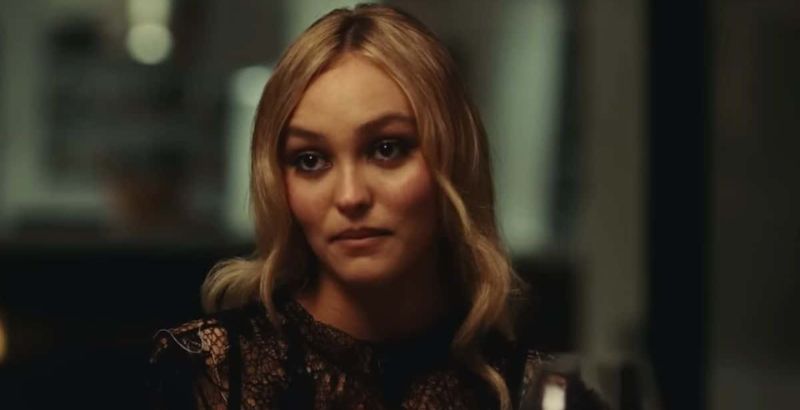
But The Idol Episode 3 does have some good performances, primarily Sennott as Leia, Moses Sumney as Izaak, Hank Azaria as Chaim, and Da’Vine Joy Randolph as Destiny. Each of them, despite their small moments, pack a punch with their time on screen. Given more interesting moments than Jocelyn by a mile, it’s all in service of watching Depp’s role as the star of the series dominated by those around her, and she can’t take the spotlight as she should.
The episode’s high point is at the dinner party gone wrong when Jocelyn gets her most lines so far and she finally starts to discuss what is hiding under here. She voices her shame around the revenge picture posted online, but after that brief glimmer of pushback against Tedros, she turns internally. Here is where we can see a moment of writing that centers on who Jocelyn is and her pain. She’s forced to share it, and she’s questioned about her choice not to hit her mother back, and it’s all delivered with a stone face and tears coming down with no emotion shown otherwise. Her voice is steady.
This interaction with Tedros is the series’ best so far because of the way he plays the intermediary between Jocelyn’s abuse and those that let it happen. But that moment fades as The Idol Episode 3 careens back into its old playbook, obscuring Jocelyn and her emotion. Depp can be the center of the story and act in a way that makes Jocelyn more than a prop, but she has to be given a chance. I’m not sure, given the ending of “Daybreak,” if that will ever happen. There is a blurring of consent in the on-screen abuse in this episode. While we see Tedros partaking in aftercare with Jocelyn, this is the one moment where The Weeknd is able to be terrifying in his coercion, and it’s achieved by showing how the people in the room, Jocelyn included look at him. While this can be a space for fruitful investigation of Jocelyn’s mental state, it’s there to make Tedros into a mythic figure within her story and to make her small.
Aside from The Weeknd’s absolutely atrocious wig, the most frustrating thing about it remains the fact that it could have been something more than what it is. <- what is “it?” Consistently, the editing of the series and obvious ADR obscures any relationships that could value in Jocelyn’s story. The creator of Euphoria, Sam Levinson, has stripped the story of anything of substance, diminishing the importance of Jocelyn as a character and instead turning her into an event.
The glimpses of good storytelling in The Idol Episode 3 seem worse than the terrible moments because they show what things could be in a show made for men to watch a woman be subjected to their whims. The truth remains that if every action was still present but told through Jocelyn’s perspective with her input on the violence happening to her, it wouldn’t be the hollow voyeuristic mess that it is.
The Idol Episode 3 is available now on HBO MAX (MAX) with new episodes airing every Sunday on HBO.
The Idol Episode 3 — "Daybreak"
-
Rating - 4/104/10
TL;DR
The glimpses of good storytelling in The Idol Episode 3 seem worse than the terrible moments because they show what things could be in a show made for men to watch a woman be subjected to their whims.

